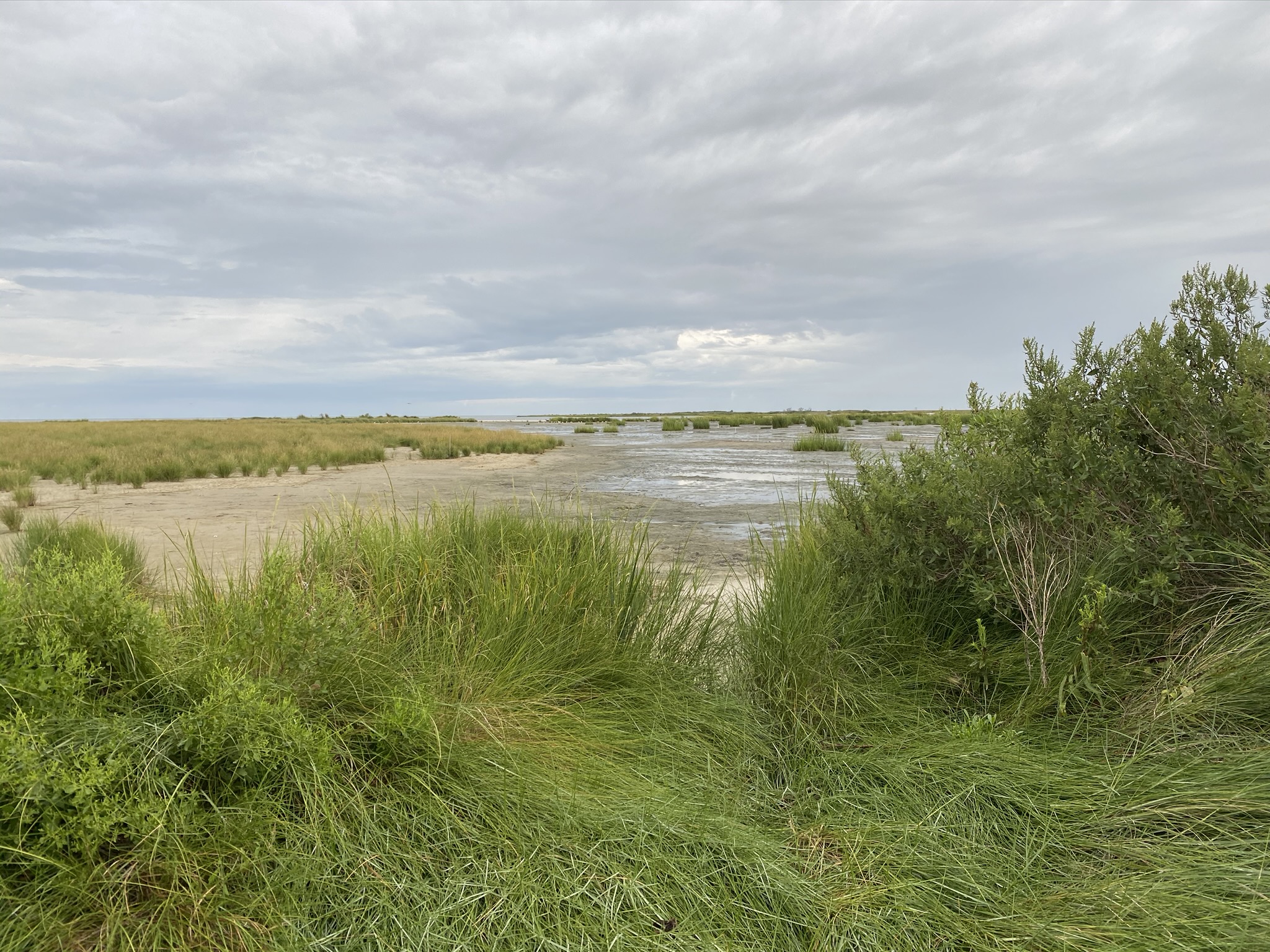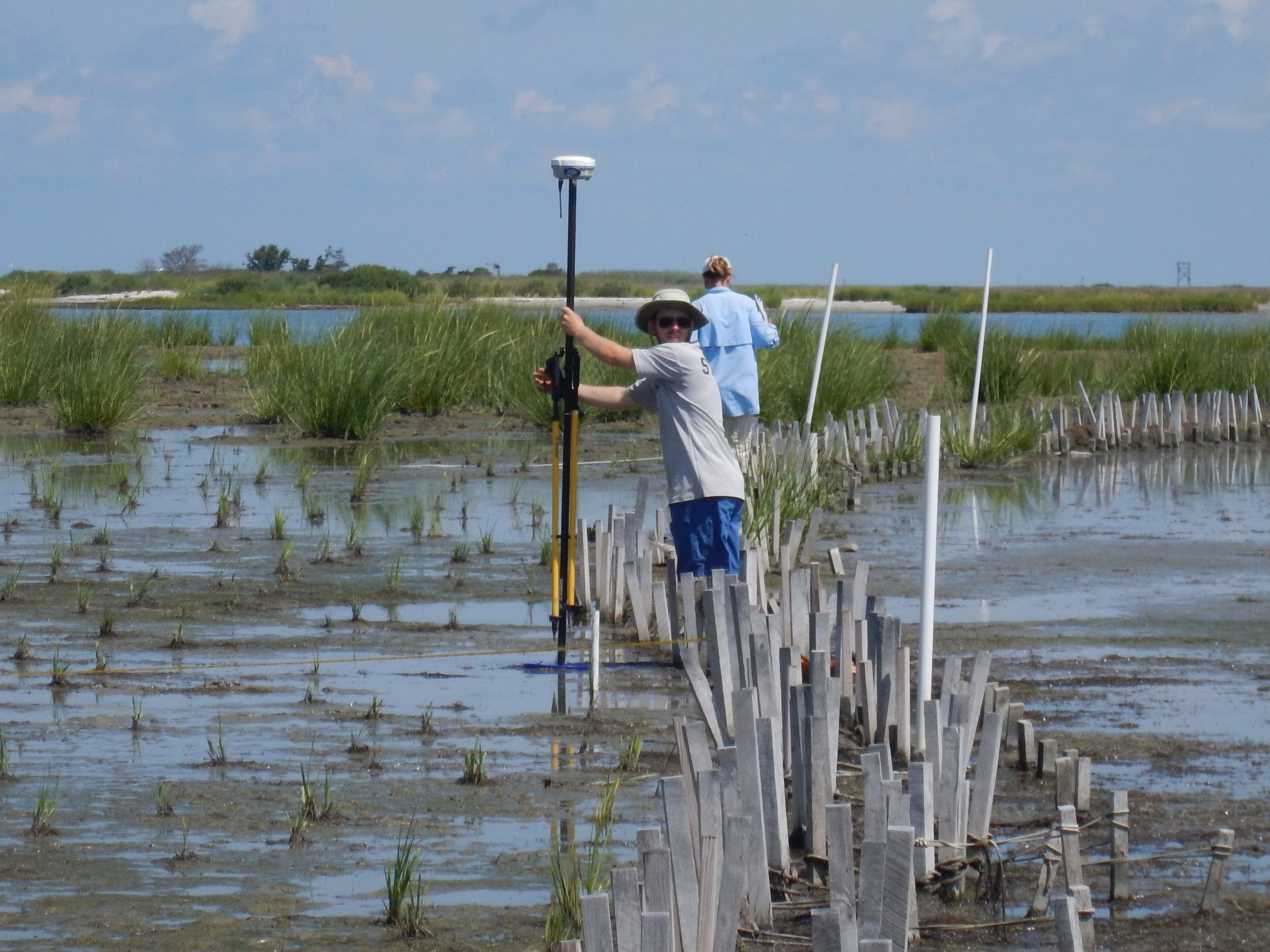
NCCOS and U.S. Army Corps of Engineers (USACE) scientists and engineers along with partners from Maryland Department of Natural Resources (MDDNR) and the U.S. Fish and Wildlife Service (USFWS) have released an evaluation framework in the Journal of Integrated Environmental Assessment and Management, to quantify the long term resilience and potential benefits of nature-based solutions (NBS). Nature-based solutions are defined as native habitats such as islands, dunes, marshes or reefs, which have the ability to reduce impacts from coastal hazards like storms and chronic erosion while also providing a suite of ecological benefits, recreation and tourism opportunities.
However, perceived uncertainties in the performance and benefits of NBS, especially as compared to conventional hard infrastructure like seawalls and jetties, have hindered their widespread implementation. Among the unknowns are the lack of quantitative data on the effectiveness of NBS across a spectrum of environmental settings and storm conditions, and the lack of guidance on NBS monitoring and design.
To address knowledge gaps, the authors have developed a framework for evaluating the performance and benefits of NBS in a variety of systems, using the restoration of Swan Island, Maryland, as a case study. The evaluation framework involves three main elements: 1) Multidisciplinary Collaboration; 2) Monitoring and Adaptive Management Planning; and 3) Predictive Modeling.

The Swan Island Restoration: A Case Study
Swan island is a 25-acre uninhabited island within the Martin National Wildlife Refuge in Tangier Sound, Chesapeake Bay. The island serves as a natural wave break for the small town of Ewell, MD, on nearby Smith Island, protecting it from waves generated in Chesapeake Bay. Due to sea level rise, Swan Island marsh habitats were quickly being converted to open water, with the island’s erosion rates up to 2 meters per year.
To counter these losses, USACE Baltimore District placed 60,000 cubic yards of dredged sediment from a nearby navigation channel onto the 12 acre low-lying footprint of Swan Island in 2019, to elevate and restore the island’s footprint. The restoration plan included the creation of low dunes and the installation of 200,000 intertidal marsh plants, transforming the island from a low-lying and highly fragmented marsh to one with a higher elevation that supports a broader range of habitats.
The evaluation of NBS performance and benefits involves the alignment of ecology and engineering disciplines, thus requiring multidisciplinary collaborations. The Swan Island restoration presented an opportunity for partners from USACE, NOAA, MDDNR and USFWS to conduct these evaluations. “This approach to research has been very rewarding,” says Dr. Jeff King, Program Manager for the USACE’s Engineering With Nature® Program and co-author of the report. “We’ve assembled a group of technical experts that are addressing many different questions about the performance and benefits attributed to island features. As you might imagine, the data collection and findings are incredibly complex, and gaining a holistic understanding can only be achieved through this connectivity of diverse skill sets and expertise.”
Monitoring and adaptive management of Swan Island is currently underway. On-the-ground monitoring efforts at Swan Island will provide the data necessary to parameterize and evaluate simulation models which are key to evaluation of project performance and benefits. The team will use the data derived from their study of island engineering and ecological performance to create tools and guidance for future NBS project evaluation.
Multidisciplinary performance analyses that quantify both ecological and engineering outcomes will generate the data necessary to compare the use of NBS for coastal protection with that of traditional engineered structures in terms of their true costs and benefits. “More than anything else evaluations of the performance and benefits of natural systems like islands will help to advance the practice, and having a prescriptive framework to guide these evaluations is a critical first step in the process” says Dr. Jenny Davis, NCCOS researcher and senior author of the report. Ultimately, these evaluations will elicit confidence in regulators and build public support for this type of federal investment, while providing the data needed to build confidence among private investors as well.
For more information on Swan Island Restoration, visit the project page, or view the project story map.
The evaluation framework was published in the journal of Integrated Environmental Assessment and Management, as part of a special series on “Incorporating Nature based Solutions to the Built Environment”.
